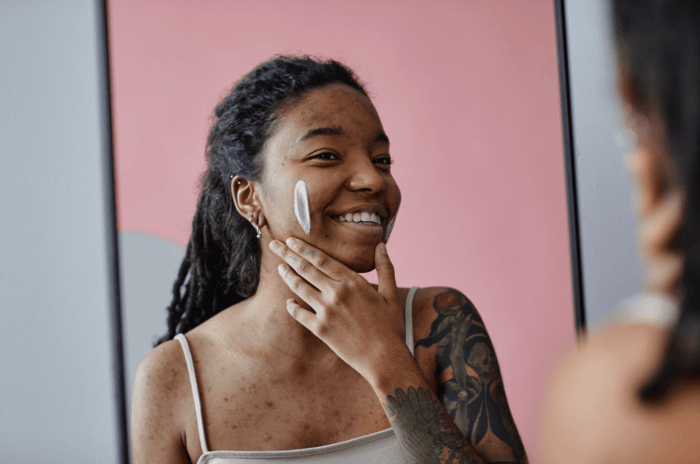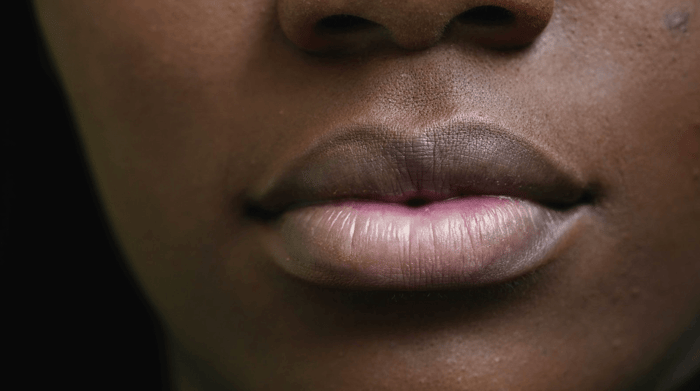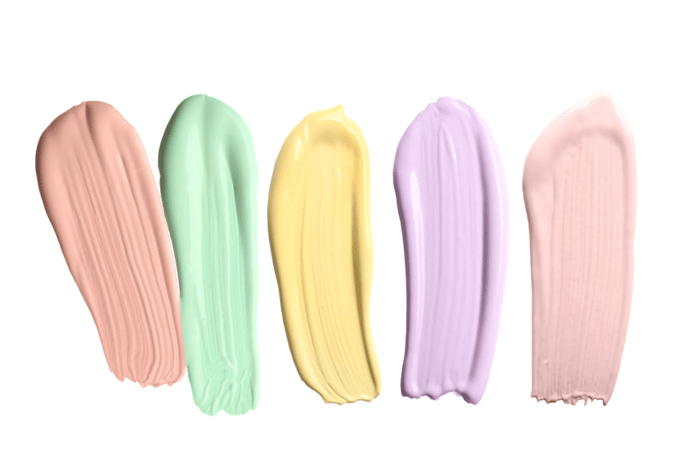Dealing with acne can be a hassle, especially for darker skin tones more prone to blemishes and spots. So, having to deal with stubborn forms of hyperpigmentation can lead to individuals longing for a more even skin tone.
In most cases, hyperpigmentation marks are temporary, so you can start to look at ways to get rid of hyperpigmentation from acne. In this guide, you'll discover some effective techniques to help you on your skin transformation journey.
From identifying where your hyperpigmentation may have come from to uncovering popular Ava Estell products. We will take you through the ins and outs of removing acne hyperpigmentation.
[Disclaimer: We put together this guide to give you an overview of acne hyperpigmentation and scarring. Each person's skin concerns vary, depending on severity, skin type, and potential underlying health concerns. So, if you'd like to know more about your skin, check with a registered GP or skincare professional.]
Post-Acne Marks vs. Acne Scars
Post-acne dark marks and acne scarring are often used interchangeably. However, there is a difference in the two terms and how it can apply to darker skin tones.
When thinking about how to get rid of acne hyperpigmentation, you may want to know how to identify both types of skin imperfections that occur after your skin has an acne breakout.
Identifying Acne Hyperpigmentation
This is an example of post-inflammatory hyperpigmentation. You'll recognise post-acne as a flat area on the skin that is discoloured due to the excess production of melanin. Typically, the acne lesion has healed at this stage, and the dark mark is temporary so it can fade over time.
Differentiating from Scars
Alternatively, acne scarring is more permanent. It changes the texture of your skin, particularly in melanated skin complexions. It results in deeper acne lesions, which is common in cystic acne.
When the skin texture is damaged, how to get rid of hyperpigmentation and acne scars can become a bit trickier. The skin will naturally produce collagen to repair the area. But in some cases, too much is produced, and the acne scar becomes raised so it doesn't heal flat.
Types of acne scars will need more professional treatment to help revive the texture that has now changed due to the healing process of the acne lesions.
Topical Treatments
How to get rid of acne hyperpigmentation with topical treatments, particularly Ava Estell, is a skincare range that works with many skin types.
Some brands may advise retinoids, AHAs (Alpha Hydroxy Acids), or other potent ingredients to remove dead skin cells. But they may also adversely affect the most sensitive skin types.
Ava Estell Micellar Cleanser
One stand-out product is the Micellar Cleanser for acne hyperpigmentation. Lactic acid is an active ingredient that stimulates:
- Cell renewal
- Collagen for firmer skin
- A healthier complexion
- More hydration
- A smoother texture
- A more balanced pH
In-Office Procedures
Some effective procedures are more likely to answer how to get rid of hyperpigmentation acne scars. However, these specific treatments could have severe side effects on melanin-rich skin tone. So, be aware of the risks and how your skin may react below:
Laser Treatment
If you have flat hyperpigmentation marks, you may want to stick to Ava Estell products and other topical treatments. But for deeper scarring, laser treatments have become a go-to choice in the skincare industry.
However, the type of laser therapy may not be the most suitable choice for your dark skin. For example, it can possibly add to skin sensitivity and irritation and require you to be extra careful with the scarred area.
It may also worsen scarring if you have an underlying skin concern that could adversely react with laser therapy.
Chemical Peels
Popular chemical peel treatments with glycolic acid or salicylic acid are proven to work for lighter skin tones.
They may be more harsh on higher melanin concentrations in the skin. So, keep in mind side effects, like redness, irritation, and itchiness.
Microdermabrasion
This technique can reduce dark spots and remove dead skin cells in the skin. If your acne scars are too severe for topical treatments, microdermabrasion could be a possible way to transform your skin texture.
It can improve collagen production, provided you check with a trained professional first to avoid damaging risks.
Getting Rid Of Hyperpigmentation: Closing Thoughts
Ultimately, how to get rid of hyperpigmentation from acne has many treatment options. However, not all of those are the solution to the various acne conditions found in melanin-rich skin tones.
Luckily, Ava Estell has an impressive selection of naturally derived skincare products that help improve the appearance of hyperpigmentation. Thanks to their Micellar Cleanser, you'll start to notice your dark marks fading over time.
If you have sensitive skin or irritation, choosing more natural products over harsh treatments can work out better for you and your complexion in the future. To unlock more information on fading acne hyperpigmentation marks with Ava Estell, check out the full range today.
Frequently Asked Questions
Does hyperpigmentation from acne go away?
Thankfully, acne hyperpigmentation does fade. But this may take some time, as fading dark marks is a gradual process, especially with gentle Ava Estell skin care.
What is the fastest way to fade hyperpigmentation from acne?
The time limit varies for each type of acne scar. For example, fresh pimples will have more redness and are less likely to scar than clusters of cystic acne.
What helps heal acne pigmentation?
Ava Estell's treatment Night Cream is an excellent lightweight cream that targets excess melanin pigment. It soothes the skin of any inflammation and reduces dark marks over time.
How do you lighten dark spots from acne?
A consistent skincare routine will help you lighten your acne marks. This should include cleansing, exfoliating, moisturising, treatment, and sun protection.










